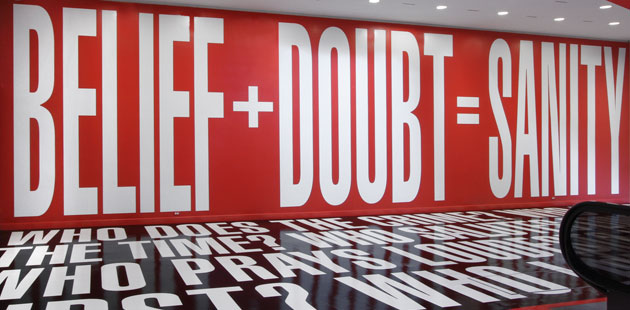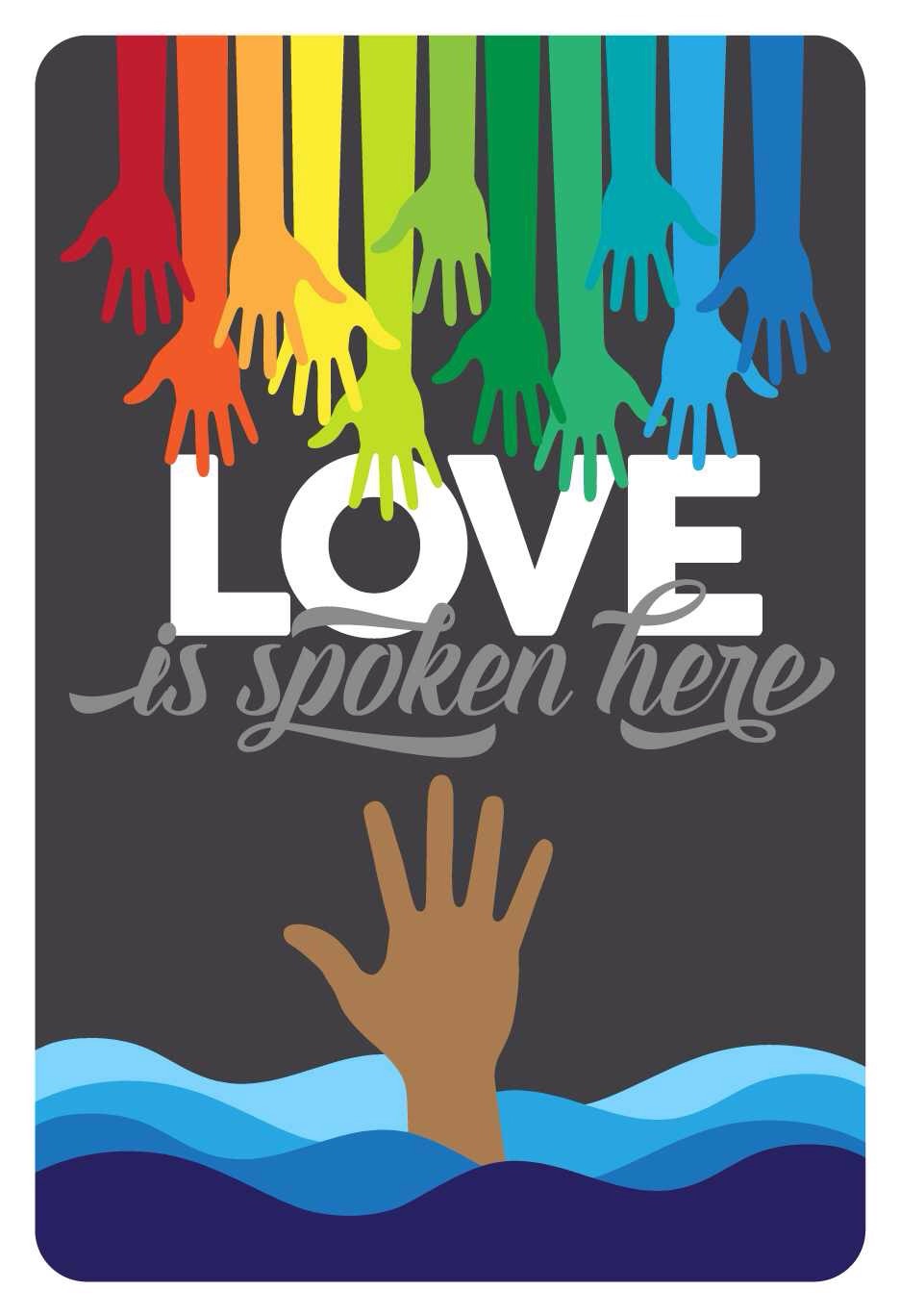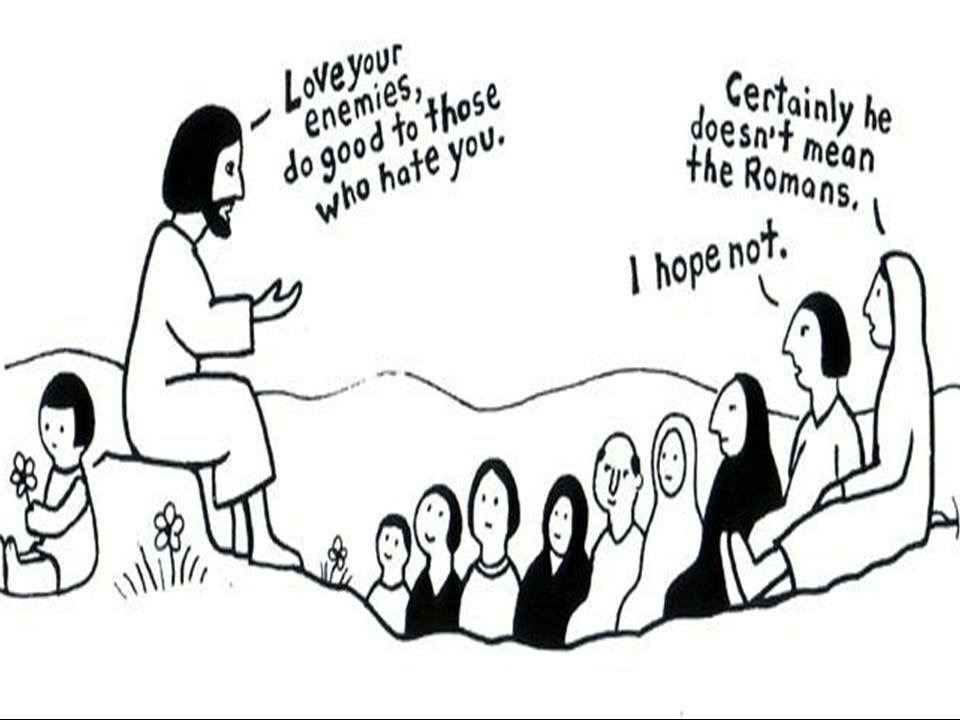The debate of whether or not we've been "lied to" really was another issue altogether, and naturally much more controversial. Nevertheless, much of the discussion has steered in that direction. So be it. I believe in open dialogue and the value of letting thoughtful opinions be heard. We mustn't shy away from hard conversations just because they're hard, nor assume that disagreement equates to contention. Ralph Waldo Emmerson spoke a profound truth when he said: “Let me never fall into the vulgar mistake of dreaming that I am persecuted whenever I am contradicted.” Likewise, Hugh B. Brown spoke a profound truth when he said we should "respect the opinions of others, but we should also be unafraid to dissent–if we are informed. Thoughts and expressions compete in the marketplace of thought, and in that competition truth emerges triumphant. Only error fears freedom of expression."
While many of the loudest Mormon or Ex-Mormon voices tend to gravitate to either extreme poles of complete adulation of church leaders or complete disaffection with church leaders, I find it far more wise (and compassionate) to strive to exist between either extreme by looking for both positive things to say but also expressing valid and constructive criticism. Emily Grover recently shared a great F. Scott Fitzgerald quote: “The test of a first-rate intelligence is the ability to hold two opposing ideas in mind at the same time and still retain the ability to function.” That, I believe, is what most of us middle-way Mormons strive for.
Whether middle-way Mormons attend church because the church is "true" for them, or whether they attend church despite the fact they no longer believe in such a thing as a "one and only true church," they tend to have an ‘eye’s and hearts wide open approach’ to the Mormon community. We sustain and show compassion for our leaders not because we believe they're always wise and inspired, but rather because they deserve love and support even if we believe they're wrong and more fallible than they themselves realize. The following guest post comes from such a middle-way Mormon, writing in response to Brian Whitney's "Heritage vs History" post. It too is a valuable read. The author, who expresses both appreciation and dissent, requested for his name to be withheld:
First off, I would like to say how thoroughly impressed I was with the post. It was well laid out, very thoughtful and it included a lot of historical context, which is helpful in understanding how we find ourselves in this position. The title to the article was sensational, but the content was very sincere and well put together. As I read it, I felt that I gained insight to Brian’s perspective. I agree the issue is complex, however I disagree with Brian’s opinion. I do agree with his assertion that the current leadership were raised on black and white thinking, and it is likely that they believed suppression of the truth was helpful in keeping the faithful, faithful. What I loved most about the article was that it spoke to me as if I was an adult, capable of understanding complex topics. As I read it I couldn’t help but think, why wasn’t this written by the brethren? I respect Brian’s opinion, for those of you who care I want to share my opinion of why I disagree with him.
I will start with the essays. To me the way the church has handled these essays is dishonest. It’s been nearly three years since they started silently placing them on the internet, unsigned and anonymous. It’s unsettling because it goes entirely against how the church does everything else. This organization is masterful at getting information to members, and the world, that they want to be heard. Have you heard about “Meet the Mormons”, what about the “Family Proclamation”, or the “Church’s stance on gay marriage”? The fact that the majority of members still don’t even know they exist, and those that do, haven’t read them, boggles my mind. I have several friends who are actually afraid to read them. I get it, it’s a red pill, blue pill type of thing, and lots of people opt for the blue pill.
I’ve been in the faith crisis coming up on a year now. That means I have gone through two conferences in my current unbelieving state. Instead of hearing talks addressing the hard issues, and genuine logical responses to these hard issues, I have heard attacks on doubters, and Elder Uchtdorf telling me to stay off the internet. The pompous way they stand there with their brows furrowed, shoulders shrugged, arms raised, shaking their heads at how one could be so stupid to allow Satan to lead them into doubt, all while never acknowledging these essays exist, speaks volumes to me about their character. I see them use fear as their main weapon of choice. The fear of losing friends and family, is real, it is powerful. I will acknowledge that there have been positive messages in these conferences, but these are the talks that focus on universal kindness. Something that the LDS church does not have a patent on. A main theme [among middle-way Mormons] is to take the messages that resonate with you and leave the others behind. This is something I struggle with, the condescending tone of the brethren regarding doubt, renders all of their other words useless and hollow to me. I only wish they could speak to me as an adult, like Brian did in his article.
My second point of focus is on the role of a prophet. As a young missionary I read the book “Our Search for Happiness” by M Russell Ballard. I loved the book. Two stories from the book resonated with me. Elder Ballard was asked the question as a mission president, “what separates your church from the others?” Elder Ballard replied, roughly “If Moses were coming to town and was going to speak, would you be interested in what he had to say? Well we have a modern prophet just like Moses that speaks for God today.” That was powerful for me at the time, it made sense. Of course if Moses was in town we would all want to hear what he had to say. Of course we had a prophet just like Moses on earth today.
He also tells the incredible experience of his grandfather’s (it could be his father, I honestly can’t remember now) meeting the savior. He called it a sacred experience, but one he felt was appropriate to share in this book. I remember reading this account and hoping that one day I could have that experience. It also followed logically that if Elder Ballard’s grandfather had seen the savior, then of course all of the brethren and the prophet had seen him. This book was in the missionary library. All good missionaries were supposed to read it. I believe this story was placed in the book to lead us all to the conclusion that the brethren speak with God. We all want to believe that this church is being led by something more than just feelings. We all want to believe that the prophet is receiving direct face to face counsel with the Lord just like Moses, and Joseph Smith. Stories like this, conference addresses where the brethren refer to each other as the Lords anointed, and even the word prophet, denotes a communication with God that is more than just feelings. The brethren are implying to everyone that they talk with God. The company line now, is that these experiences are just too sacred to share. I believe they have taken this stance so they can feel better about not lying. If these men were honest they would tell us if they had actually seen the Savior or not. When you begin to think more critically, it becomes very difficult to accept 150 years of racist and sexist policies when it was the savior in charge all the time.
Small point on this one, apologists love to cite Russell Nelson’s 1992 talk to mission presidents where he mentions the stone in the hat. Somehow they think this example shows that the church has always been open and honest about its past, to me, this does exactly the opposite. How do you explain Russell Nelson not correcting this image being portrayed incorrectly in literally every instance where the church portrayed it? Blaming the artists is dishonest to my intelligence.
Lastly I would cite the movie “Joseph Smith Prophet of the Restoration”. Apologists love to cite the essays and the Joseph Smith Papers project as proof of the new openness of the church. This movie was first made in 2006 and then redone in 2011, long after the Joseph Smith Papers Project was well underway. If you haven’t watched this movie I highly recommend it. If after watching it you can’t see the dishonesty in it, we will have to simply agree to disagree.
I realize that all of this is just my opinion so take it for what it’s worth, but I believe the church has, and is, currently being dishonest with me. I know most of these men probably really believe what they are saying. However, these men lived through the 60’s & 70’s with the Tanners, (I’ve met Sandra Tanner, lovely woman) the 80’s with Mark Hoffman, the 90’s with the September Six. They know the issues. If they had good answers we would have heard them by now. The truth, in my opinion, is that they have no good answers, so they assassinate the character of those who dare speak the truth, and belittle the intelligence of those who dare to doubt.












